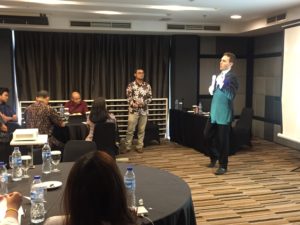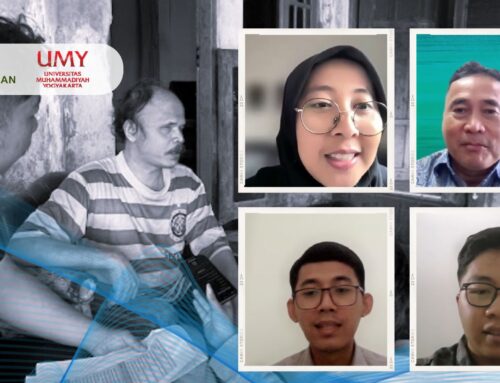Update: penelitian ini telah terbit sbb: Christopher Hoy, Russell Toth, Nurina Merdikawati, 2024. “How does information about inequality shape voting intentions and preferences for redistribution? Evidence from a randomized survey experiment in Indonesia,” Journal of Behavioral and Experimental Economics 112. https://doi.org/10.1016/j.socec.2024.102274.
Inequality is an issue that has been highly addressed by both the government and the general public. The current government claimed that reducing wealth disparity is one of their main priorities. Likewise, a 2014 World Bank study revealed that most Indonesians are quite concerned about the subject. However, the same study also showed how Indonesians underestimate the level of inequality in the country and tend to believe that they are placed in the middle of the income distribution. These misperceptions are correlated to the policies that they expect from the government. On Thursday, 6 September 2018, Article 33 hosted this month’s first FKP event at The Akmani Hotel, Jakarta. Christopher Hoy ( The Australian National University), presented the findings of a study conducted with Russel Toth (The Universit of Sydney), exploring Indonesians’ policy preferences subject to their perception of inequality in the country.
Using a randomized controlled trial (RCT), Hoy and Toth conducted an online survey with around 3,700 respondents, which represented the Indonesian population with internet access. The respondents were divided into three groups that received different sets of information: the actual level of inequality in Indonesia, the respondent’s position in the income distribution, and no information, respectively. According to conventional economic theory, the treatment given to the first group should show a rise in people’s concern of inequality, and consequently, increase their support for redistribution policies. A respondent in the second group who was told that they are relatively poor should be more concerned about inequality and increase their support for redistribution, and vice versa. However, this theory is found to not always hold true in the real world.
Consistent with conventional economic theory, this study found that correcting people’s misperceptions led to an increase in people’s concern to inequality. However, this study also found that informing people that 20% of the richest people in Indonesia own 85% of the wealth did not lead to an increase in the support of redistribution. In fact, informing people that they are relatively wealthier reduced their support for redistributive policies. In contrast, a higher percentage of Indonesians believe that creating new jobs and fighting corruption, as opposed to taxing the rich, would be better policies to close the gap between the rich and the poor.
All in all, Hoy believes that Indonesian people initially tolerate the possibility of increased taxes for the purpose of redistribution. However, the government should not emphasize inequality as the motivation behind the policy, as it will reduce people’s support and thus be counterproductive to the effort.
For the complete presentation and Q&A session, please refer to the video and materials provided.





